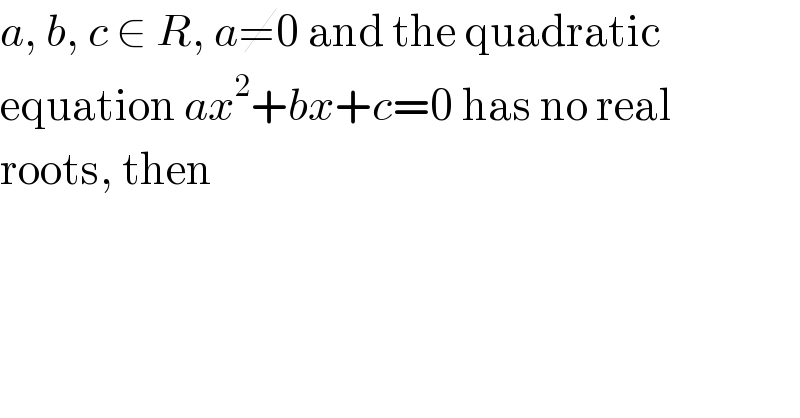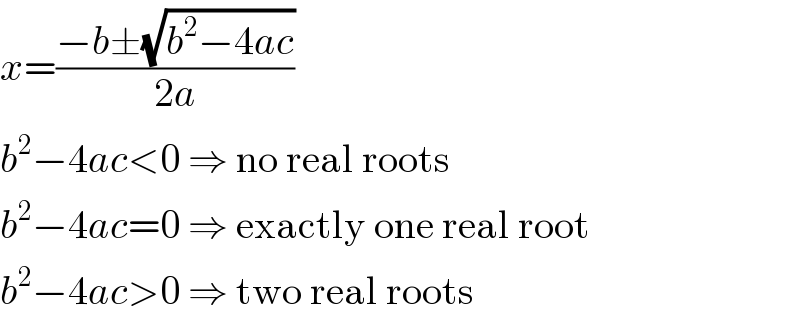
Question and Answers Forum
Question Number 34425 by Vijay kumar prasad last updated on 06/May/18

Answered by MJS last updated on 06/May/18

Answered by Rio Mike last updated on 06/May/18

Commented by MJS last updated on 06/May/18

| ||
Question and Answers Forum | ||
Question Number 34425 by Vijay kumar prasad last updated on 06/May/18 | ||
 | ||
Answered by MJS last updated on 06/May/18 | ||
 | ||
| ||
Answered by Rio Mike last updated on 06/May/18 | ||
 | ||
| ||
Commented by MJS last updated on 06/May/18 | ||
 | ||